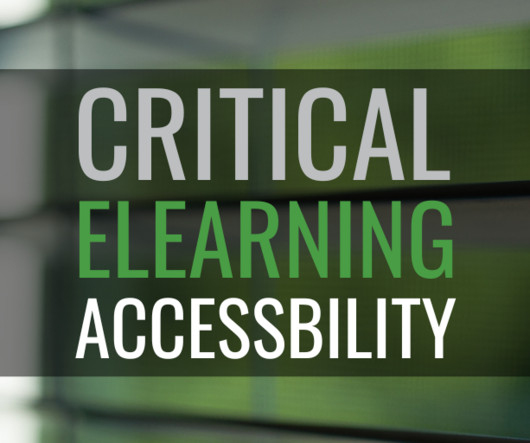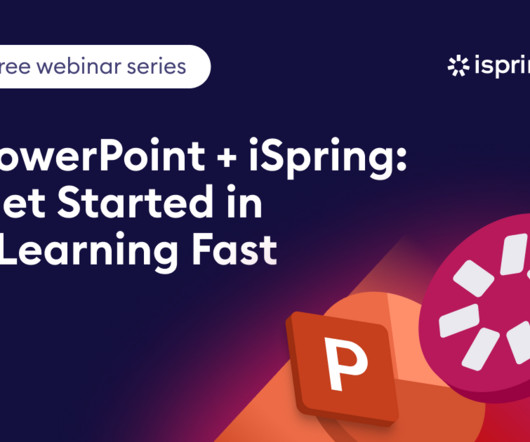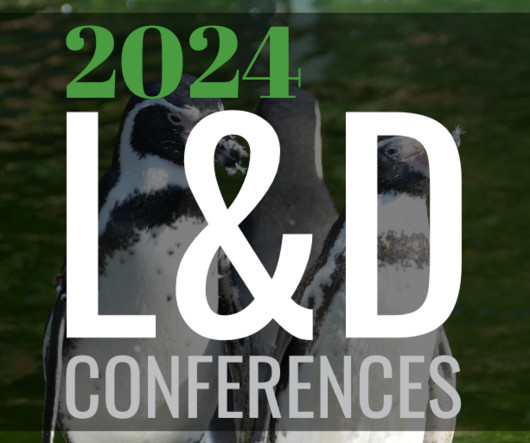Our digital future 10: Cognitive courseware
Learning with e's
OCTOBER 1, 2019
But have you heard of cognitive technology? Cognitive technologies can be defined as artificial intelligence tools that perform tasks that were once the sole preserve of humans. Examples of cognitive technologies include computer vision , deep learning, natural language processing , speech recognition, and humanised robotics.


















































Let's personalize your content